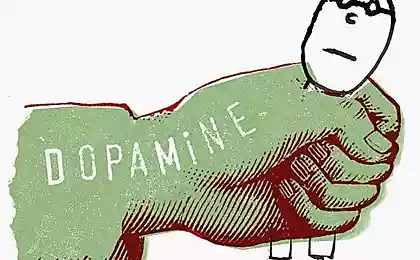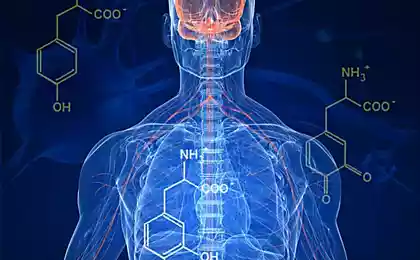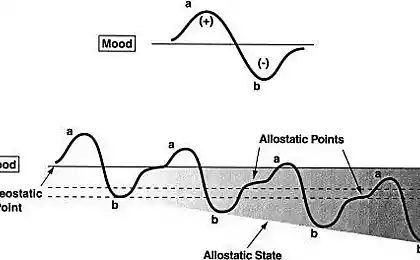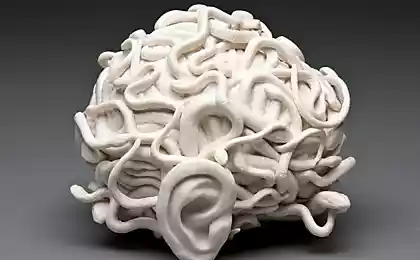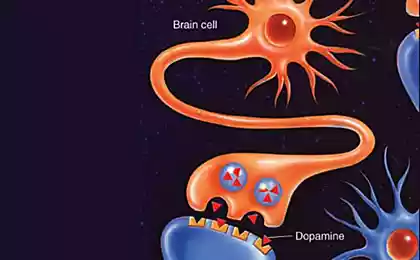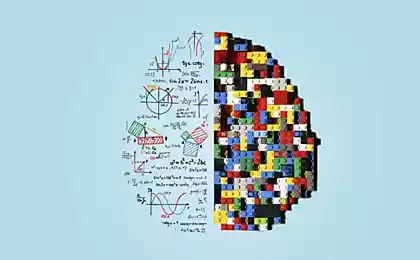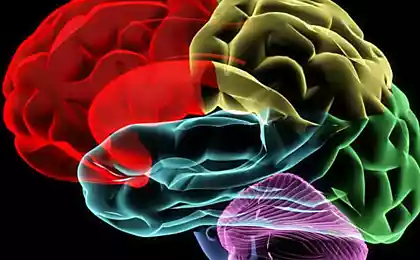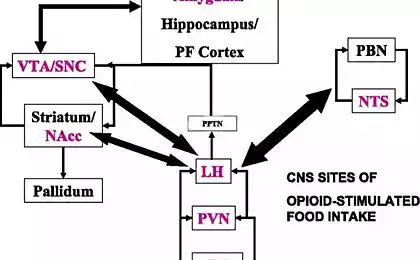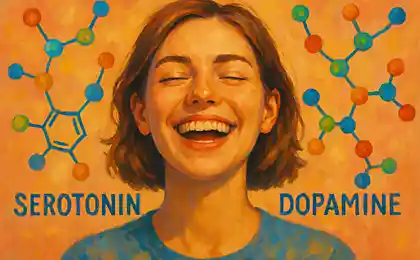104
5 things you don’t realize because you’re addicted to dopamine
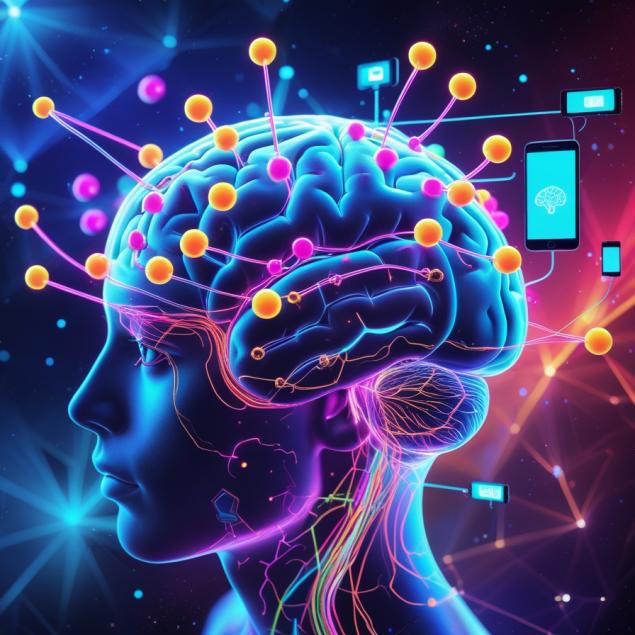
Imagine that your brain is a complex biochemical laboratory where thousands of reactions occur every second. At the heart of this lab is one of the most powerful chemicals, dopamine. This neurotransmitter is not just responsible for pleasure, it literally programs your behavior, goals, and ability to perceive reality.
But what happens when this system starts working against you? When does the constant pursuit of dopamine bursts turn into an invisible prison that prevents you from living a full life? Today, we’re going to take a look at five critical things you may not notice because of your addiction to this happiness hormone.
1 You live in a mode of constant waiting for an emotional explosion
The modern world has created for us the perfect trap of instant pleasure. Every social media swipe, every like, every notification is a microdose of dopamine that makes your brain demand more and more. Gradually, a vicious circle is formed: ordinary, natural sources of joy begin to seem bland and uninteresting.
Danger: When you go out for a walk, but it seems “too slow” when a book seems “too long” and a conversation with friends is “boring” are clear signs that your dopamine system is unbalanced.
Research suggests that frequent use of social media can reduce levels of basal dopamine, the amount of neurotransmitter needed for normal functioning. As a result, you begin to experience constant inner anxiety and dissatisfaction, which can only be temporarily silenced by a new portion of quick pleasure.

2 Your ability to concentrate is slowly being destroyed
Every time you switch from one stimulus to another — from work to phone, from phone to video, from video to game — you train your brain to be impatient. It’s not just a “bad habit,” it’s a physical change in brain structure that affects your ability to sustain attention.
Neuroscientists have found that constantly switching attention activates the same areas of the brain as when using drugs. Your brain begins to perceive deep concentration as something unnatural and unpleasant.
Procrastination in dopamine addiction is not laziness, it is the physiological inability of the brain to enjoy long-term tasks. Important projects that require time and effort begin to seem unbearably boring because they don’t provide instant rewards.
How to restore concentration:
25+5 technique: Work 25 minutes without distractions, then 5 minutes of rest. Gradually increase your work time.
Digital detox: One hour a day without gadgets – let your brain remember what silence is.
Monotasking: Only do one thing at a time. No multitasking!
3 You don't notice how you're missing the present
Dopamine addiction creates a strange paradox of time. You are constantly living either in anticipation of future pleasure or in memories of the past high. The present moment—the only time you really have—becomes simply a transition between doses of pleasure.
Time doesn’t slip through your fingers – you let it go, chasing the illusion of happiness in a future that will never come.
When you’re waiting for the next message, the next video, the next purchase, you’re basically telling your brain, “What’s happening right now isn’t good enough.” This creates a chronic state of dissatisfaction that is independent of external circumstances.

4 You become a slave to external stimuli.
One of the most devastating effects of dopamine addiction is the loss of intrinsic motivation. When your brain gets used to enjoying only external sources, it forgets how to create joy from within.
You begin to depend on a constant stream of news, likes, shopping, entertainment. But what happens when that flow is interrupted? There is anxiety, irritation, a feeling of emptiness. You become a hostage to your own need for external stimulation.
Signs of external dependence: You cannot be alone without entertainment; silence seems unbearable; you are constantly looking for something to do with yourself; without a phone, you feel lost.
True freedom begins when you can be happy without constant external nourishment. This does not mean giving up pleasure, but it means taking back control of your inner state.
5 You don’t see how destructive habits consume your life
Dopamine addiction works like a cunning enemy – it masquerades as harmless habits. Five minutes on the phone turns into three hours. One episode of the series becomes a sleepless night. "A little sweet" is transformed into a constant overeating.
Each of these habits seems insignificant, but together they create a powerful system that robs you of your time, energy and ability to develop. You are left in a vicious circle where each new source of instant pleasure takes you away from the deep, meaningful experience of life.
Key insight: Dopamine addiction is not a moral weakness, it is a physiological process that can be changed through conscious action and patience.
The Path to Freedom: Practical Steps
dopamine detox
Day 1-3: Eliminate all sources of quick pleasure (social networks, games, TV series, sweets).
Day 4-7: Gradually introduce useful activities: walking, reading, meditation, creativity.
Day 8-30: Form new habits that provide lasting satisfaction.
Deferred pleasure technique
When you feel the urge to check your phone or eat something harmful, say to yourself, “I’ll do it in 10 minutes.” Gradually increase the waiting time.
Replacement of incentives
Instead of scrolling the tape - 5 minutes of breathing exercises. Instead of sweet, a glass of water with lemon. Instead of games, 10 push-ups.
Conclusion
Dopamine addiction is not a sentence, it is a challenge that can make you stronger and more aware. Understanding how your brain works is the first step to freedom. Every day, when you make a conscious choice for the long-term good instead of instant pleasure, you reprogram your neural network.
Remember, the goal is not to give up pleasure altogether, but to regain control of your reactions and ability to enjoy life in its fullness. Your brain has an amazing ability to change — use it to your advantage.
Glossary of terms
dopamine
A neurotransmitter that plays a key role in the brain’s reward system by regulating feelings of pleasure, motivation, and purposeful behavior.
Basal dopamine
The background level of dopamine in the brain necessary for normal functioning and maintaining a stable mood.
Sustainable attention
The ability of the brain to concentrate on one task for a long time without distraction by external stimuli.
Internal motivation
The desire to engage in activities for one’s own pleasure and development, not for external rewards.
Neural plasticity
The ability of the brain to change its structure and function in response to lifelong learning and experience.
dopamine detox
The practice of temporarily abandoning sources of quick pleasure to restore normal dopamine receptor sensitivity.
Why You Never Solve Problems If You Think About Them Too Much
3 super simple criteria to keep your mind healthy
